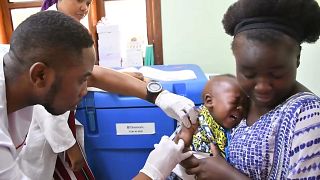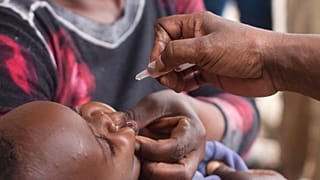Malawi
Extreme weather events in Malawi have driven "very sharp" rises in malaria infections and deaths, a global health chief said ahead of World Malaria Day on April 25.
Cyclone Freddy in March triggered six months' worth of rainfall in six days, causing cases there to spike too, Peter Sands, head of the Global Fund to Fight AIDS, Tuberculosis and Malaria, told reporters
The dramatic increase in cases caused by climate-change-driven weather disasters illustrated the need to "get ahead of this" now, he said.
In both countries, pools of water left behind as waters receded created ideal breeding grounds for malaria-carrying mosquitoes.
The WHO said there had been some progress made in the fight against malaria but stressed that a child still dies of the disease every minute.
In 2021, the WHO said there were an estimated 247 million cases worldwide and 619,000 deaths attributed to malaria.
Scientific breakthroughs saw more than a million children in Ghana, Kenya and Malawi last year given the RTS,S vaccine manufactured by British pharmaceutical giant GSK.
Another vaccine, R21/Matrix-M, developed by Britain's Oxford University, received clearance to be used in Ghana earlier this month -- the first time it has received regulatory clearance anywhere in the world.
Vaccines had less potential to combat the disease than routine diagnosis and treatment infrastructure due to the relative cost of immunisation and the difficulty of large-scale deployment.
The groups most vulnerable to malaria are children under the age of five and pregnant women, with deaths largely down to late diagnosis and treatment.











01:05
Madagascar cyclone death toll rises to 59 as devastation mounts
01:04
Cyclone Gezani: At least 36 killed, hundreds injured in Madagascar
01:37
WHO urges US to share Covid origins findings
00:55
Madagascan Leader Randrianirina visits city devastated by Cyclone Gezani
00:50
At least 20 killed as Cyclone Gezani tears into Madagascar
01:13
Gates Foundation denies claims it’s behind mosquito surge in Kenya